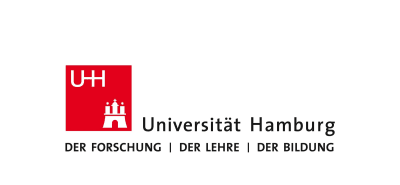
Master of Science in Psychology
Hamburg, Germany
DURATION
4 Semesters
LANGUAGES
English
PACE
Full time
APPLICATION DEADLINE
Request application deadline
EARLIEST START DATE
01 Apr 2025
TUITION FEES
EUR 335 / per semester

STUDY FORMAT
On-Campus
Admissions
Introduction
Master of Science (MSc) in Psychology with a focus on Research at the Faculty of Psychology and Human Movement Science. The Master of Science in Psychology is a consecutive program with a strong focus on research. The regular period of study is 4 semesters. The teaching language is primarily English, but some courses must be taken in German.
The degree program comprises eight modules in total that broadly fall into three study components. As a first key component, the program includes two intensive compulsory modules on Advanced Research Methods and Statistics and Psychological Diagnostics. As a second key component, the program offers the possibility to select two theme-specific areas of study: (1) cognitive neuroscience and (2) social and emotional processes. Given the program's set-up, students may either complement both areas or choose to only study area 2. The third component integrates different elective and project-related courses and modules that complement the theme-specific areas of study by providing a broad and changing range of topics.
Ideal Students
The degree program is primarily aimed at national and international psychology students who wish to pursue a scientific career (doing a PhD thesis), work as a research practitioner, or policy advisor in government institutions, or in the public or private sector where data literacy and the handling and evaluation of statistical data sets is of large importance.
Curriculum
As a research master's student, you can study two subject-specific areas:
Cognitive Neuroscience: How does the brain work? How do we use information and experience to make decisions? What exactly does neuroplasticity mean? How does stress affect our brain? Topics related to cognitive neuroscience are taught in the supplementary basic module Cognitive Neurosciences and the elective course Developmental Cognitive Neuroscience. Selected topics include the investigation of neurological mechanisms underlying cognitive and emotional processes, with a strong focus on the integration of theories, methods and paradigms based on the current state of research, including neuroimaging studies and mathematical models.
Social and emotional processes: How do other people influence our thoughts, feelings and behaviours? In what way do family, school and work environments shape individual characteristics and experiences? And how do these characteristics, experiences and social dynamics develop over the entire lifespan? Topics relating to social and emotional processes are taught in a basic module Origins of and Differences in Human Cognition and Personality as well as in the two applied elective modules Social Dynamics of Organizational Behavior and Socio-Emotional Development and Learning. Selected topics include the integrative perspective on social and biological processes and their interaction from developmental, social, cognitive and personality psychology research. The two applied modules transfer these topics to expand our understanding of social dynamics in teams and organizations as well as socio-emotional development in educational contexts.
Given the strong research focus of the Master's, comprehensive methodological and statistical knowledge is taught and required in all modules. In particular, in-depth methods instruction is integrated into the supplementary modules on basic research, the applied modules, the project module and the thesis module. In all modules, the focus is on imparting comprehensive knowledge of data evaluation methods. This includes experimental data collection in the laboratory, which includes state-of-the-art methods such as neurophysiological measurements (e.g. fMRI, EEG), behavioural measurements (e.g. reaction times, eye tracking) and videotaped interactions. In addition, the modules cover data collection in the field (e.g. apps, reports, scan sampling) and a range of statistical methods for data processing and evaluation, including managing large data sets with repeated measures, dealing with missing data and applying various experimental, latent and cognitive data modelling approaches.
In addition to the research methodology focus and the two complementary topic-specific study focuses an internship is planned in the third semester of the course, during which students also have the opportunity to spend a semester abroad. The teaching formats of the course include various formats such as lectures, seminars and intensive project seminars. The Master's course is a face-to-face course in which the regular teaching formats take place in person. Hybrid and digital forms are only considered under special circumstances.
Program Tuition Fee
Career Opportunities
Possible job prospects and professional fields include the vast area of human behaviour, such as counselling, diagnostics, management, educational interventions, professional development, training programs, developmental support, professions with a methodological focus, and data acquisition and processing (except clinical psychology). In particular, the degree enables students to pursue doctoral studies at a high level. For this purpose, the option of a fast-track doctorate that runs concurrently with the master’s degree program is available.
Program Admission Requirements
Show your commitment and readiness for Grad school by taking the GRE - the most broadly accepted exam for graduate programs internationally.
